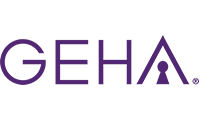Get connected to local support groups in the Henryville, PA area and stay informed on local addiction news in the community.
With nearly one in four high school students reporting using a prescription medication outside of its intended or prescribed purpose in the past year, the opioid epidemic being seen across the United States is taking its toll on teens.
Given this dangerous reality, schools are left to decide how they will handle instances of overdose on school grounds. And while no one knows the exact number that such instances have occurred, the rate at which young people are abusing prescription drugs means that schools will continue to be put in the position of having to respond to overdoses.
An Evolving Role at the Front Lines
School nurses are no longer just responsible for eye exams and taking temperatures. Rather, they are on the front lines of the opioid crisis affecting teens nationwide. Recently, some school districts, such as those in Monroe County, including the Stroudsburg and East Stroudsburg areas of Pennsylvania, passed new regulations which allow school nurses to carry and administer a drug called Naloxone, otherwise known by its brand name Narcan. This drug can reverse the effect of an opioid overdose by blocking the effects of the opioid in the brain, and can restore breathing in two to eight minutes.
Naloxone has been used by medical professionals and emergency response personnel for some time, but access for school nurses is new. Prior to the adoption of these recent regulations, school nurses could only call for paramedics in the case that one of his or her students overdosed on campus. The time between that phone call and the arrival of emergency response teams can be critical, and sometimes can lapse too long to save a life. Now, some school nurses can administer Naloxone directly, providing acute care when it’s needed most.
A Divided Issue
But not everyone is in favor of allowing school nurses to administer Naloxone. Some critics fear law suits could threaten a school district’s stability if the drug is ineffective, expired, or given incorrectly, causing damaging effects. Overwhelmingly, however, school nurses are fighting to be able to administer Naloxone on the job, with the National Association of School Nurses endorsing Naloxone in June of 2016.
Help is Available
Should a young person in your life begin showing signs that he or she is engaging in opioid abuse, do not delay in connecting him or her with a medical or mental health professional who can provide an assessment, and make recommendations as to the types of care the teen needs to overcome this dangerous disease.
Fortunately, there are treatment facilities available that offer programming which is designed to address opioid abuse in young people by providing developmentally appropriate treatment services. It is critical that teens who are battling addiction receive the compassionate care required to overcome this deadly form of substance abuse, and reclaim the healthy young lives they so deserve.







